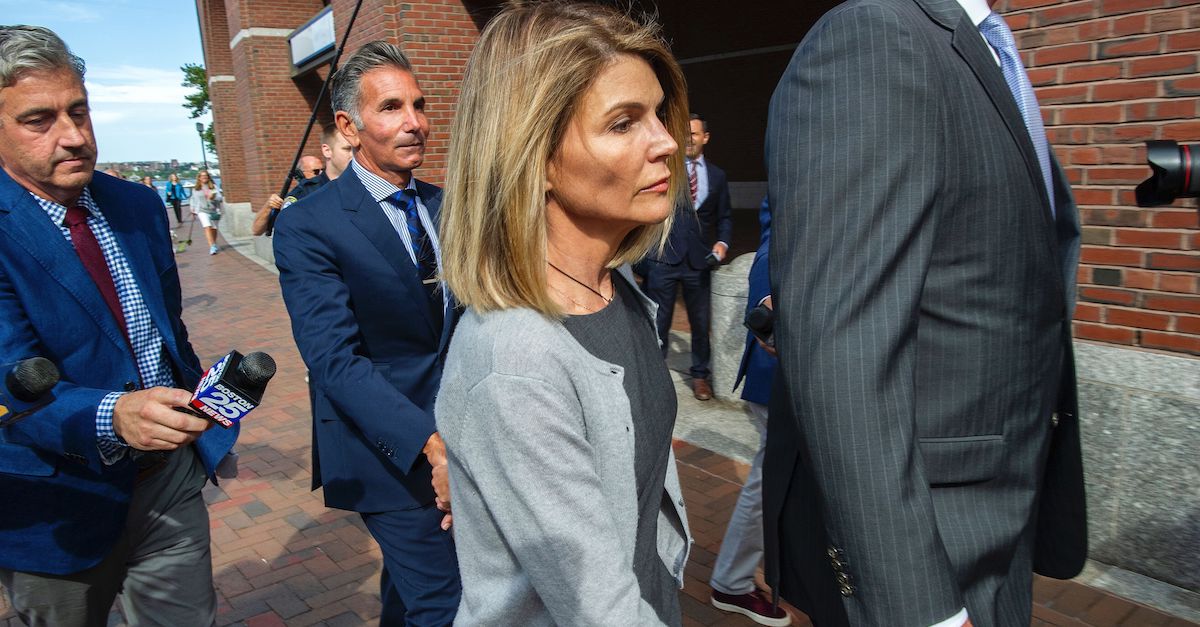
Attorneys for 14 parents charged in the college admissions scandal have filed both a motion to dismiss the indictment and a memorandum in support of the motion in the hopes that U.S. District Judge Nathaniel Gorton will see things their way.
Gorton, a tough customer who did not allow the COVID-19 pandemic to grind proceedings to a halt, has in two cases called guilty Varsity Blues defendants thieves at sentencing. Judge Gorton is well-known as one of the toughest sentencers in the District of Massachusetts--and defense attorneys for Varsity Blues clients have accused prosecutors of “judge-shopping” by steering cases to Gorton. Gorton has shown time and again that his views on these cases differ from another judge who has handed out sentences.
Nonetheless, defense lawyers–in the names of Amy Colburn, Gregory Colburn, Gamal Abdelaziz, Diane Blake, Todd Blake, I-Hsin Chen, Mossimo Giannulli, Elisabeth Kimmel, Lori Loughlin, William McGlashan Jr., Marci Palatella, John Wilson, Homayoun Zadeh, and Robert Zangrillo–asked the court on Wednesday to dismiss the indictment.
In the memorandum, the defense argues that government’s misconduct in this case has been so egregious that, at most, the indictment should be tossed into the dustbin of history and, at minimum, crucial evidence should be disallowed.
The controversy here ultimately stems from admitted mastermind William “Rick” Singer’s recordings of conversations with clients. The government listened in as Singer made up a story about an IRS audit. What resulted were conversations between Singer and the various defendants getting their stories straight while the government listened and recorded.
The defense once again accused the FBI of coercing lies and accused prosecutors of withholding exculpatory evidence:
Yet last month, the Government belatedly disclosed Singer’s contemporaneous written notes revealing that those recordings were a sham carefully engineered by government agents in an effort to “entrap” Defendants and “nail” them “at all costs.” The notes state that agents browbeat Singer and instructed him to lie in order to elicit misleading evidence that was inconsistent with the actual facts that Singer had explained to agents. As detailed in the notes, agents directed Singer not to mention on the calls that he had previously told the clients their payments would be “donation[s]” that would go “to the [university] program [and] not the coach,” id.—in other words, that their payments were not unlawful bribes.
At least two members of the prosecution team viewed Singer’s notes 16 months ago, back in October 2018. Yet instead of investigating Singer’s assertions—or disclosing the information— the prosecution buried this evidence and repeatedly misrepresented to Defendants and the Court that it had fully complied with its obligations under Brady v. Maryland, 373 U.S. 83 (1963). Meanwhile, the Government allowed Singer to delete thousands of potentially exculpatory text messages from his cellphone. And it then mounted an aggressive (and highly successful) pressure campaign against other defendants to secure guilty pleas and lengthy sentences—all while hiding key exculpatory information from defense counsel, the Probation Office, and this Court.
The defense says this “extraordinary misconduct warrants extraordinary relief.”
“The facts known so far justify dismissal of the indictment. At a minimum, the Court should order suppression of the tainted recordings,” the attorneys argued. “Suppression is essential because the recordings are highly inflammatory, prejudicial, and deliberately misleading—especially in light of Singer’s other statements to Defendants and the Government that the payments were not bribes.”
The defense asked Judge Gorton to “order an evidentiary hearing to uncover the full truth about the recordings and the Government’s efforts to fabricate and conceal evidence,” citing the need to deter the government from doing this again.
The attorneys claimed to take no joy in putting these allegations on the record.
“Undersigned counsel are committed to the criminal justice system and have proudly served as prosecutors and defense lawyers for many years. It brings no joy to file a motion of this nature,” they said. “But the extraordinary Government misconduct presented in this case threatens grave harm to Defendants and the integrity of this proceeding. That misconduct cannot be ignored.”
“Defendants respectfully ask the Court to dismiss the Fourth Superseding Indictment with prejudice or, in the alternative, to suppress the Government’s consensual recordings and order discovery and an evidentiary hearing on the matters raised herein,” the lawyers concluded.
Full House actress Lori Loughlin and her husband Mossimo Giannulli are the most famous of the remaining defendants. They have pleaded not guilty to all charges.
They face 12 criminal counts, including: conspiracy to commit mail and wire fraud and honest services mail and wire fraud; conspiracy to commit federal programs bribery; money laundering conspiracy; wire fraud and honest services wire fraud; aiding and abetting; federal programs bribery; aiding and abetting. All of that adds up to a technical possible punishment of decades behind bars, but that will never happen.
Lori Loughlin et al. motion to dismiss by Law&Crime on Scribd
[Image via Joseph Prezioso/AFP/Getty Images]